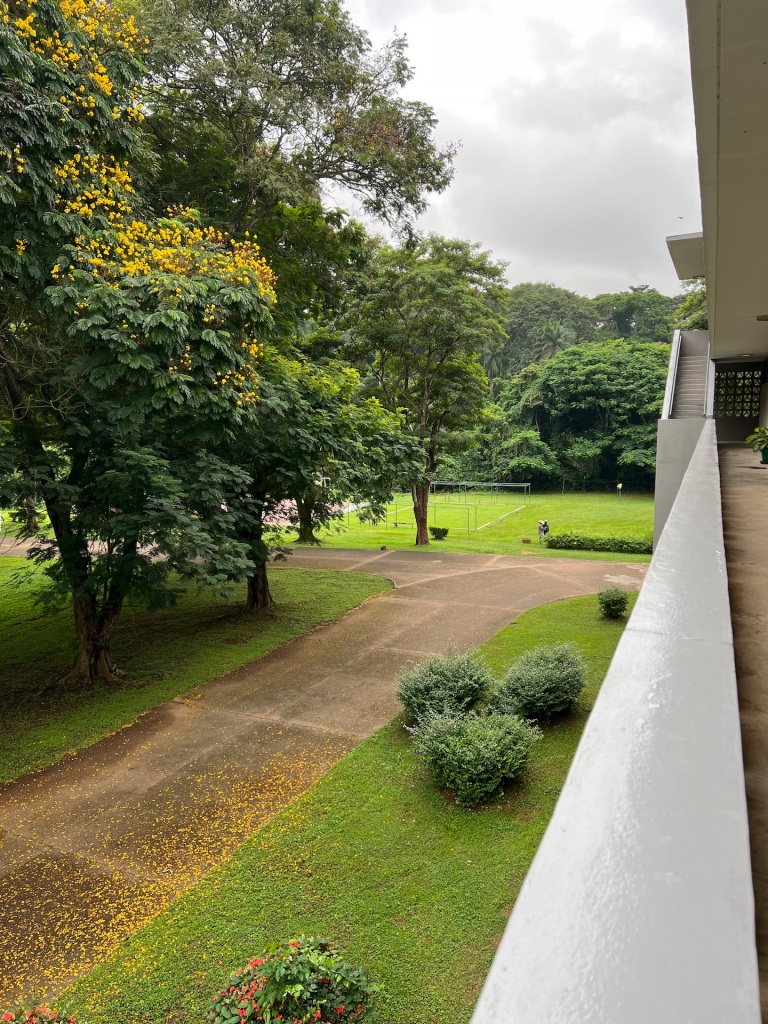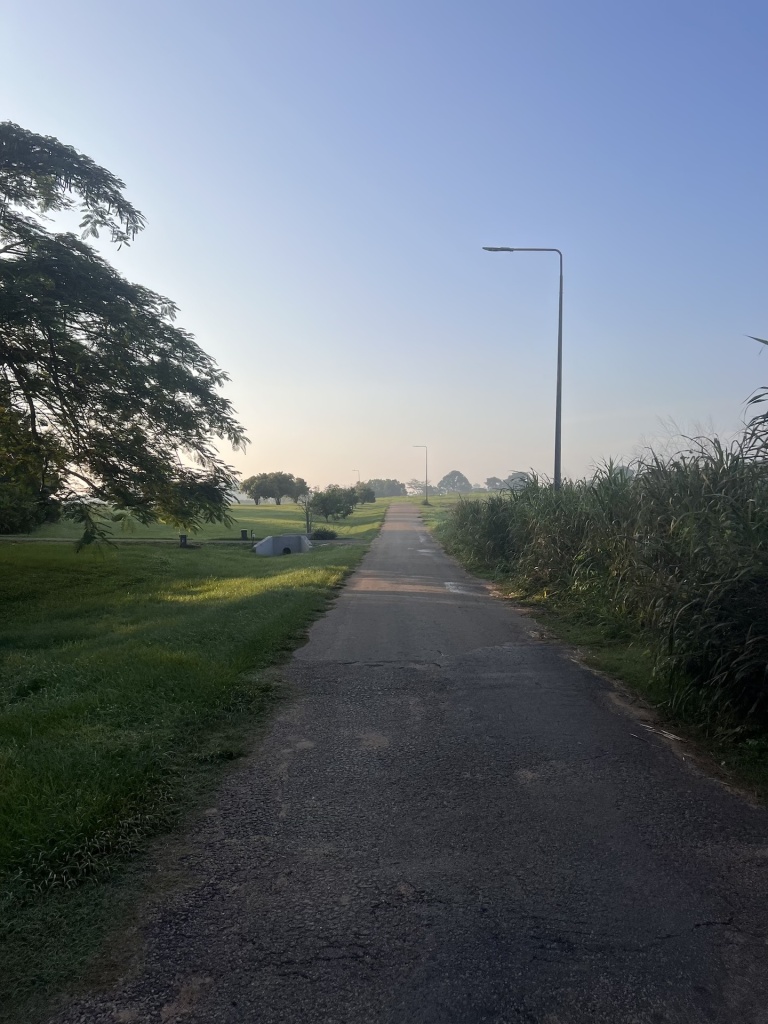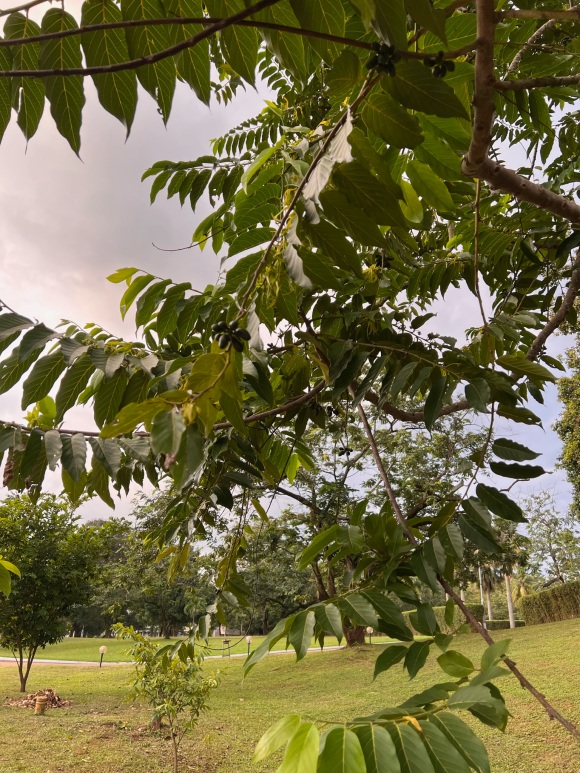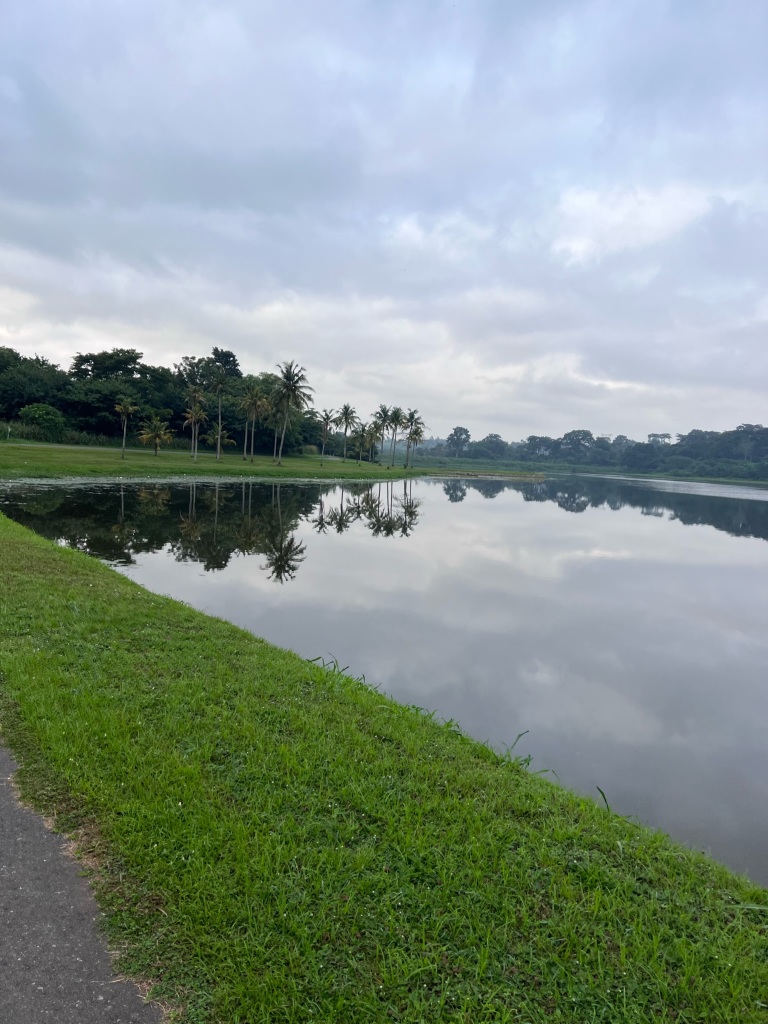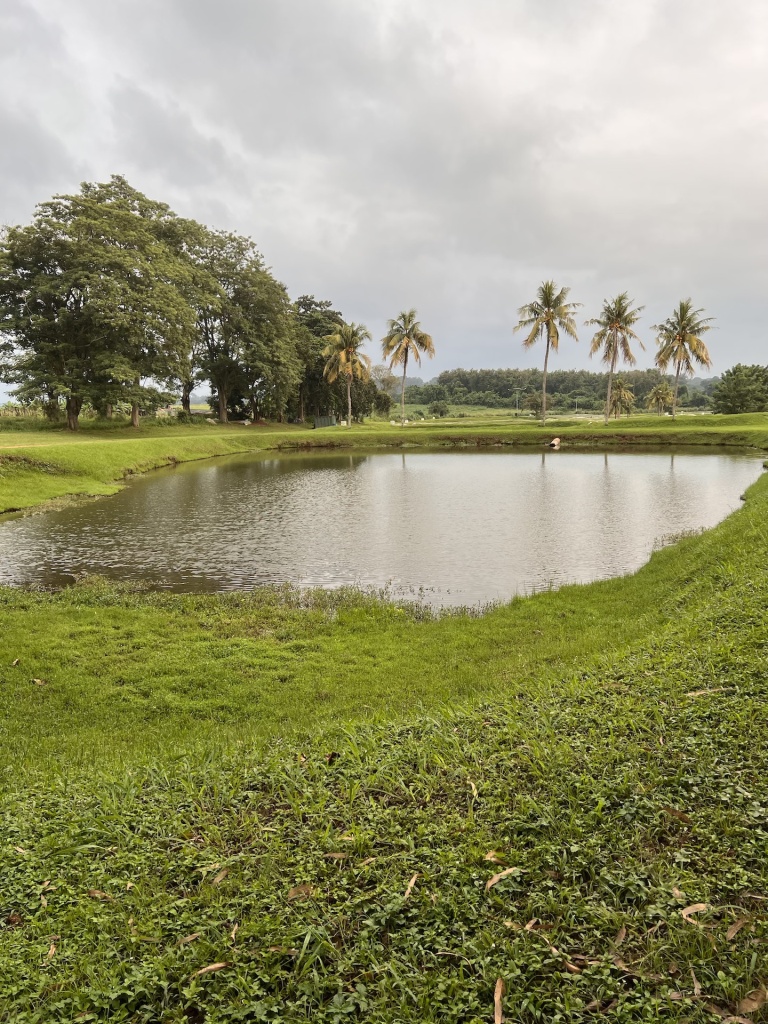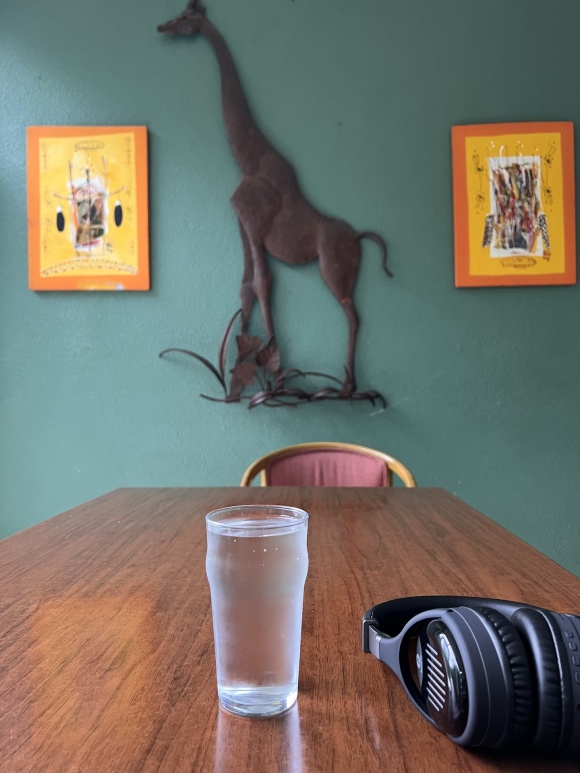
I never knew I could enjoy my company as much as I did on this journey at IITA. Solo travelling is exciting, and I would do it all over again.
I did not go to IITA to have fun. I was on a soul-searching journey. As cheesy as that sounds, I went to IITA to bring myself back to me. I was not in a good place, and I needed to go somewhere that felt safe and familiar, and because I was at IITA in June and liked it there, I knew it was the perfect place for me.
I am not in the habit of travelling; June was the first time I travelled. However, I recommend leaving our safe spaces every once in a while to do something that feels good for us.
As I walked through the driveway at IITA, I found myself reflecting on Fred Minnick’s Experiencing the world through my senses on Meditative Story, and this line stayed with me throughout my walk: “I have smelled eucalyptus hundreds of times, but I have never taken the time to really just become entranced with it. Now I allow myself to let the smell linger in my senses with nowhere to be and nothing to prove.”
After my stay at IITA and on my long nights of walking the streets of my neighbourhood, I would come to understand why Fred Minnick spoke to me.
Coming home to a familiar place: How my senses play a huge part in my upbringing.
At IITA, I felt the trees and plants through their individual scents, and as I walked through them, they hit me, leaving behind a scent that feels so familiar; a smell that takes me home to a time when I was little and walked the woods to fetch water from the stream at Udu Ukpor in my village, and firewoods at Ugwu ekwensu and nri ewu (fodder) for the goats in my grandparent’s house. My memory of fetching fodder may have awakened these senses in me, as I learnt to recognize goat feed through their scents from foddering fetching with my cousins and mama (grandmother). Likewise, I learnt their names and knew not to fetch ata because it was a plant that could tear a goat’s mouth. I also understood that ara ma njino is nutritious and helps with red blood cell production for goats, so we made sure to fetch plenty of it.
This scent from home guided me on my walk through the residential driveway, led me on my run to the forests at IITA, down to the lake, and straight to breakfast as I dashed, first, for the glass of water at the breakfast table. I tell everyone who cares to listen that the water IITA served at breakfast is delicious and leaves behind a feeling of freshness that registers itself in the back of my head. Drinking the water at IITA reminds me of a time my papa (grandfather) drank the water we fetched from Udu Ukpor on a hot afternoon, and the first words he exclaimed were ‘mmiri nke a ná ató nọ òmí.’ In English, it translates to “this water hits the right spot of the brain,” meaning that the water tasted very delicious.
At the breakfast table in June, I had argued with my friends about why I thought the water was pure, and they had responded in utter disbelief, ‘Ify, pure water should have no taste.’ Of course, we learnt in school that one of the qualities of good water is ‘tasteless.’ What if I had said it had a distinct smell? I would have shot myself in the foot by unintentionally declaring that the water, which I had argued was pure, failed to meet two safe water quality requirements. But I am uncertain how to debate that I did not mean ‘smell’ in a bad sense and that I meant it had a good scent. That also would not have bode well, as good water should not taste or smell in a certain way. I could argue that good water should not taste flat. However, please forgive my argument here, as I am not a water quality specialist.
“How do I sustain this feeling of calm and bliss that I experienced at IITA?”
As I journeyed home from IITA, I felt a sense of dread as I wondered how I could sustain the feeling I had on my travel. How do I keep the calm and the bliss I had experienced as I move back to my life of responsibilities?
The first few days after my arrival from IITA, I concentrated more on my hearing, paying extra attention to nature as I walked my neighbourhood. I felt my senses heighten, and I swear I could smell something familiar from the sparsely grown shrubs on the roads. I listened out for birds’ sounds, and their melodies seemed distinguishable from other sounds, and I wondered if there was a time I did not hear them before. I could perceive the freshness of the morning, and I squinted when an unpleasant smell of gas broke the pleasant air.
I focused on continuing the routine I developed at IITA until I realized I was trying hard to maintain the euphoria I experienced at IITA. While meditating with Rohan Gunatitillake, I came upon Lehua Kamalu’s story: Tracking the path of the sun, and saw I wasn’t alone. Lehua also felt the same way on her trip back from the sea when she asked the question:
“How, I wonder, will I orient myself on land? How will I spot the stars, when the sky seems so much smaller from land than it does at sea?”
Lehua Kamalu
“I think it would suck if God did not exist. Otherwise, how can I explain beauty, nature, love?”
One sunny evening on my way back from Lekki, as my inDriver steered the car through the roads of Ikoyi, I beamed in delight as I saw a world I may have been oblivious to. Ikoyi was beautiful against the evening sun with the trees and tall buildings. I realized I was letting myself see Ikoyi for the first time. My driver asked if it was my first time visiting Lagos. No, it wasn’t. I didn’t realize we had such beauty around us.
In my journal entry, I wrote as I watched, “I think it would suck if God did not exist. Otherwise, how can I explain beauty, nature, love?”
“No, nature keeps on giving. It’s beautiful out here.”
As I go through my daily routine through life and work, I realize that the experiences I take from my visit to IITA will remain with me if I let them. They are here, with me. I experienced them, and I take them with me. In being here — present, I become content with this place and accept that this imperfect place can be a happy place too.
One of the blessings I bring with me from IITA is clarity. I can listen to the thoughts in my head more clearly. I feel thankful for the people I met at IITA. Even though I may never get to meet some of them again, I feel my paths may cross again with others.
“This place can be a happy place if I can slow down and remain present.”
IITA has become my sanctuary; it is a safe space for me to slow down and unwind. But I don’t need to go to IITA to slow down. I can recall the lessons from my journey and slow down with myself or my folks at Akanka Spaces. And I can decide to go back anytime, and it does not have to be when I feel my spirit separate from my body. However, I am back to my reality, home, friends, siblings, family, and responsibilities.
While I am back in this very familiar place, I remind myself that this place I have here can be a happy place if I can slow down and remain present. I needed a return home to bring me back to this place of consciousness and intentionality, and I am thankful to be home again.


